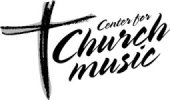Center For Church Music, Songs & Hymns

Browse Hymns:
Browse by:
We Invite You To Sing
To sing with us, 1) Click on the music thumbnail icon to view the sheet music (you don't have to read music!), and 2) Engage the audio file by clicking on the Real audio or Mp3 file.
Find Songs And Hymns
Strasbourg Psalter
In the Middle Ages, people did not sing in public worship services. John Calvin rediscovered the book of Psalms and transferred the singing from the clergy to the congregation. In 1537 he proposed to the council of Geneva that to sing Psalms "in order to lift up our hearts unto God and to exalt His Name by the songs of praise." The council rejected this proposal, feeling the time was not right for such a change.
John Calvin was banished from Geneva to Strasbourg in 1538. The following year he assembled a small book of Psalms, 19 of them in a rhymed version, plus the Song of Simeon, the Ten Commandments and the Apostles' Creed. 13 of the Psalms were rhymed by Clement Marot, who was a servant and court poet of King Francis I of France. The other 6 were by Calvin himself.
Most of the tunes for the 19 Psalms and 3 Hymns were composed by Matthias Greiter. Most of these melodies have since disappeared, however, the melody of Psalm 68 (which is the same as for Psalm 36) has remained in the Book Of Praise.
It's important to note that some say the first edition of the Strasbourg Psalter appeared somewhat earlier than previously thought.

